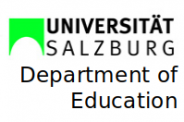
The Paris-Lodron University Salzburg (PLUS) is a University with four faculties (catholic theology, law, cultural and social sciences, natural science) and a school of education. The Department of Education is part of the Faculty of Cultural and Social Sciences. The expertise of the key person, Jean-Luc Patry, is, among others, in values education with a special focus on combining values and knowledge education with a particular model, “Values and Knowledge Education” (VaKE), which can be used in teacher training as well as in other educational contexts. Other domains of expertise are social interaction (particularly situation specificity), theory-practice relationship, subjective theories, and research methods. PLUS has participated in EU projects, many of which relevant for PROTECH.
PLUS will contribute its special approach towards supporting beginning teachers in solving professional conflicts that arise around discipline problems in their classrooms. Studies of management strategies of pre-service teachers in their induction reveal that discipline problems are one of their greatest challenges because they struggle with competing discourses concerning institutional needs for order and the individual needs of children (McNally et al. 2005; Stoughton 2007). It is expected that pre-service teachers’ moral conflicts will focus particularly on issues of discipline, putting in conflict their pedagogical beliefs and expectations from their studies with the schools' expectations to keep students' attention and calmness. To this end, solving moral conflicts becomes a necessity within teachers' professional development and thus should be seen as an issue to deal with during induction and within the MITs in this project. We find these dilemmas to re-occur in the transition stage between academia and teaching, thus addressing the issue in the MITs ןמ Proteach project will contribute to the induction and to its implementation in the academia.



